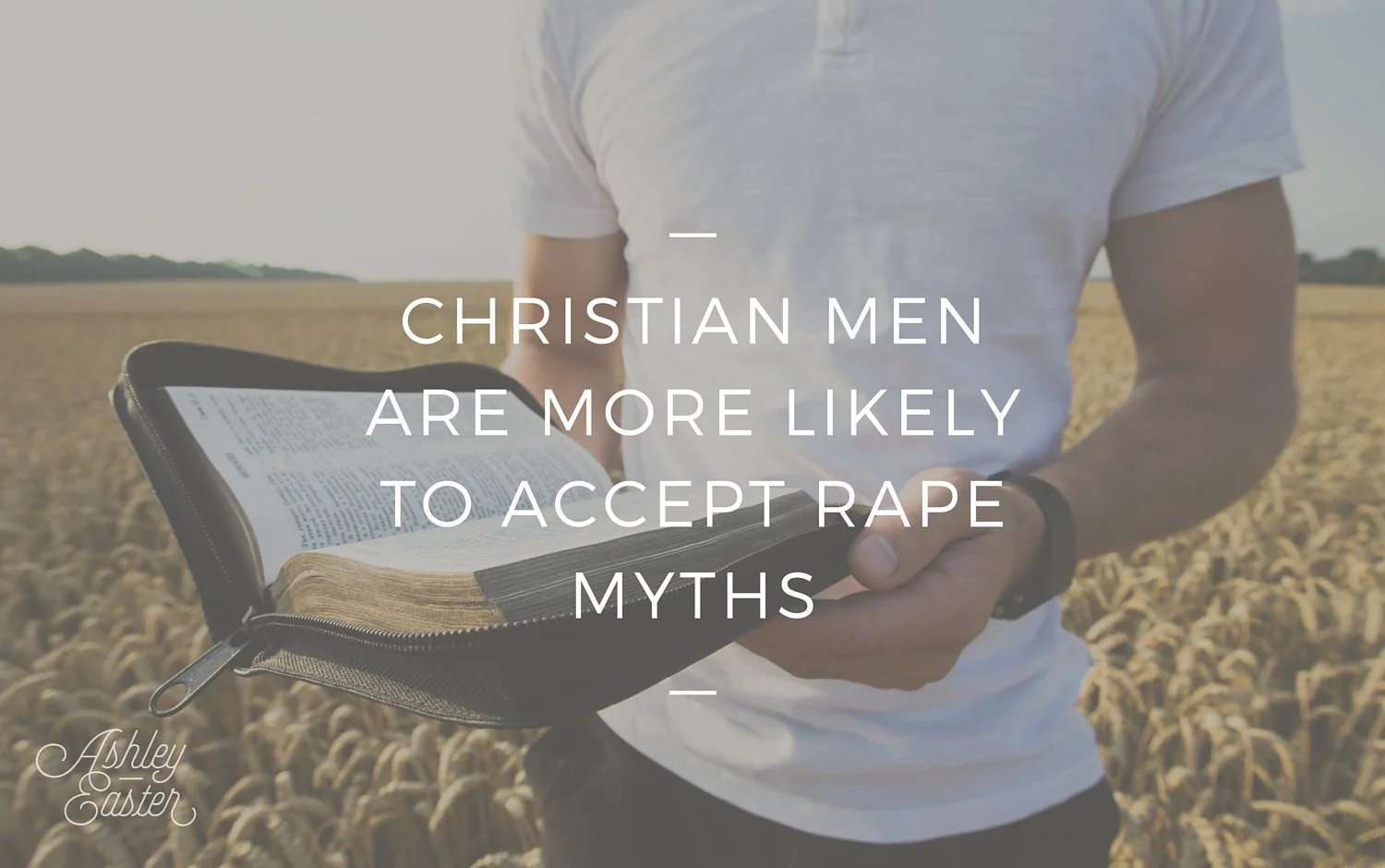Christian Men Are More Likely To Accept Rape Myths
I am an abuse survivor and a Christian. So, it was natural for me to reach out to my pastors and spiritual leaders (all of whom were male) following my abusive experiences. And to my dismay, when I reached out I was often met with disbelief, minimization, blame shifting... and most surprisingly, even hostility in some cases.
These reactions made much more sense to me after I read a research paper that contended that benevolent sexism (including traditional gender role attitudes) was linked with a higher acceptance of rape myths (also known as victim blaming).
The 2014 Journal of Integrated Social Sciences’ article (1), “YOU ARE NOT YOUR OWN:” RAPE, SEXUAL ASSAULT, AND CONSENT IN EVANGELICAL CHRISTIAN DATING BOOKS, states:
“…[benevolent sexism] did relate to rape myth acceptance in cases of acquaintance rape (Abrams et al., 2003), which accounts for about two thirds of all rapes committed (U.S. Department of Justice, 2005; RAINN 2012). People who ranked high in benevolent sexism were more likely to pass blame onto victims because they saw victims as transgressing traditional feminine gender roles (Abrams et al., 2003) [See Table 1]. Two components of both hostile and benevolent sexism—dehumanization and traditional gender roles—especially contribute to unhealthy attitudes surrounding rape and rape victims.”
The study also concluded that males are more likely than females to accept rape myths. Additionally, higher levels of religiosity often relates to higher levels of benevolent sexism. Because of this, “…it is not surprising that religious men are more likely than non-religious men to agree with rape myths.”
Rape myths are defined as: “a specific set of attitudes and beliefs that may contribute to ongoing sexual violence by shifting blame for sexual assault from perpetrators to victims”
I find this incredibly sad but seemingly true. Most, if not all, of the abuse survivors who came forward over the last few weeks to share their stories with me also came from Christian, Patriarchal/Complementarian environments. Nearly all of them had experienced blame, shame or minimization by the Christian men in their lives, particularly their church leaders.
I believe in the Blessed Alliance of men and women; and, I believe we are created to be stronger together. The Church should be on the forefront of stamping out abuse. But, this will never happen if we do not educate, examine and course correct damaging belief systems in Christian men and women.
In my experience, men who espouse more Egalitarian (anti-sexist) belief systems are almost without exception more empathetic and understanding towards abuse victims. This is largely because of they have educated themselves on the positive effects of equality, realizing that in equal environments abuse myths cannot survive. They have self examined and are aware of unfair societal privileges and they make a conscience effort to resist taking advantage of patriarchal constructs or allowing others to do the same.
Within the last three years I have met many Christian men (including pastors) who champion women and stamp out rape culture myths. I am proud to be married to a man like this. And to these men I say: Thank you! You are making a difference. You are changing the world... and the Church.
-Ashley Easter
Notes and Sources:
(1) 2014 Journal of Integrated Social Sciences’ article, “YOU ARE NOT YOUR OWN:” RAPE, SEXUAL ASSAULT, AND CONSENT IN EVANGELICAL CHRISTIAN DATING BOOKS

